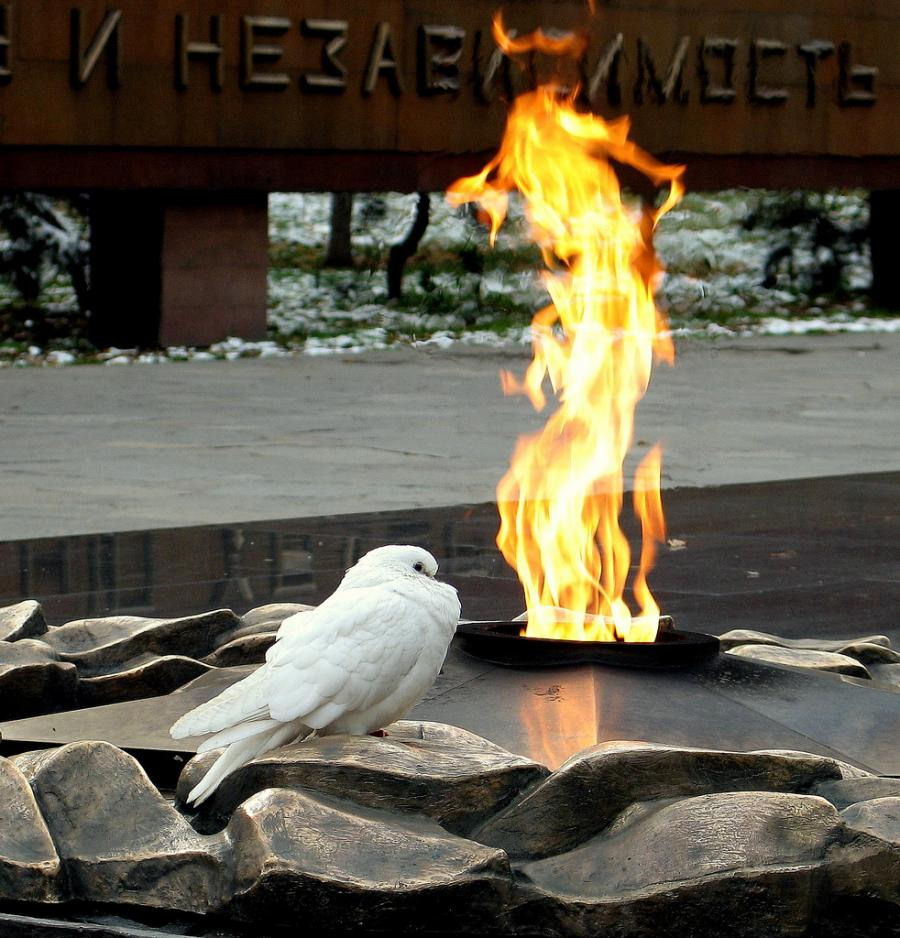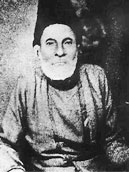

|
How to live In mid life, Michel de Montaigne had a brush with death that cured him of obsessions with death. It incidentally cured depression and self-doubt, and set him on a course writing the essays which we still read and learn from 450 years later. Read a Guardian review of a biography by Sarah Bakewell «Ce qui est hors des gonds de la coutume, on le croit hors des gonds de la raison.» “Whatever is out of fashion we believe to be unhinged from reason.” — Montaigne |
1 December 2010
|
||
|
The Festival of Chutzpah While it is common for countries and states to have their official birds and flowers, we Jews have our official attitude: chutzpah. Chutzpah is a Yiddish word meaning “extreme self-confidence.” Whether it is the chutzpah of Abraham arguing with God to spare Sodom, or the chutzpah of Job demanding that God appear before him to explain Himself, or the chutzpah of Jesus taking on the powers of Temple and Empire in the name of the Kingdom of Heaven, chutzpah is a powerful force shaping the mindset of the Jewish people and our religion. Chanukah is a celebration of chutzpah. The reason most Jews are unaffiliated and nonpracticing isn’t because
|
2 December 2010
|
||
|
Don’t forget to celebrate the world exactly as it is today. |
3 December 2010
|
||
|
Take this crown upon thy head The Master says to our master, Come up. Share my rest and splendour till all natures that were your enemies become slaves to dance before you and backs for you to ride, and firmness for your feet to rest on. From beyond all place and time, out of the very Place, authority will be given you: the strengths that once opposed your will shall be obedient fire in your blood and heavenly thunder in your voice. “Overcome us that, so overcome, we may be ourselves: we desire the beginning of your reign as we desire dawn and dew, wetness at the birth of light. Master, your master has appointed you forever: to be our King of Justice and our high Priest.” — from The Great Divorce, by C. S. Lewis |
4 December 2010
|
||
|
In praise of amateur music As a musical amateur, I feel free to throw caution to the winds, to play with abandon, not to be constrained by consistency or even the details on the page. I believe in fidelity to the composer’s intent, but broadly interpreted as a conception, not necessarily in detail. Within my own technical limits, I try to express an interpretation that is individual and idiosyncratic, knowing there is no public to please and no critics to placate. I first learned this miniature from Prokofiev’s Visions Fugitives when I was still in my teens, and my interpretation was furious and without subtlety. I hope that my present rendition is just as explosive, but more effective for the sharp dynamic contrast and controlled variations in tempo. The one-minute piece was inspired by the Russian Revolution of 1917. My association with the word fugitive has been the desperation of a refugee from brutal war; but just yesterday I came to understand that Prokofiev’s title means simply Fleeting Visions. Listen
to #19 from Prokofiev’s Visions Fugitives,
performed by Josh Mitteldorf |
5 December 2010
|
||
|
Communion Like a prism of oil in a puddle under a car after a storm, |
6 December 2010
|
||
|
Whither happiness?
“One cannot divine nor forecast the conditions that will make happiness; one only stumbles upon them by chance, in a lucky hour, at the world’s end somewhere, and hold fast to the days, as to fortune or fame.” — Willa Cather, born this day in 1873
“That is happiness: to be dissolved into something complete and
great.”
|
7 December 2010
Portrait of a woman |
||
|
“Whoever undertakes to set himself up as a judge of Truth and Knowledge is shipwrecked by the laughter of the gods.” — AE |
8 December 2010
|
||
|
Gail Weinstein, 1955 - 2010 She listened.
Say “death” and the whole room freezes–
Say the word continuously,
Continue saying it, hold it moment after moment inside the mouth,
Death is voracious, it swallows all the living. The grip of life is as strong as the grip of death. (but the vanished, the vanished beloved, o where?) — Jane Hirshfield |
9 December 2010
|
||
|
Freer – messier – happier Child-rearing should be shared. It was never meant to be a full-time job. Part-time, it’s a joy. Roles are blurring, families are more chaotic, and that’s a good thing. A confluence of economic necessities and an opening of social values has led people to experiment with non-traditional models of child-rearing. When it works best, it serves both the children and the adults.
Wendy Call writes about
co-parenting a neighbor’s baby. |
10 December 2010
|
||
|
“It was only when I lay there on the rotting prison straw that I sensed within myself the first stirrings of good. Gradually it was disclosed to me that the line separating good and evil passes not between states nor between social classes nor between political parties, but right through every human heart, through all human hearts. And that is why I turn back to the years of my imprisonment and say, sometimes to the astonishment of those about me, bless you, prison, for having been a part of my life.” —
Alexender Solzhenitsyn, born this day in 1918 “Talent is always conscious of its own abundance, and does not object to sharing.” |
11 December 2010
|
||
|
And philosophers ask is it possible knowingly to believe a lie I might knock off writing now
Hope is a benignant thief.
Chits we earn by today’s effort
On our deathbeds, the habit of hope will be with us still — Josh Mitteldorf |
12 December 2010
|
||
|
Communal living We’ve built and maintained do-it-yourself communities because we believe there’s much more to a neighborhood than redundant rows of houses and hallways without any other humans in sight. As a self-selecting band of social and environmental activists, we decided that if the market wouldn’t supply ‘neighborhoods on purpose,’ we’d do it ourselves. — David Wann, from Reinventing Community |
13 December 2010
|
||
|
Incremental anti-aging progress
Extremely low doses of the drug lenalidomide can
stimulate the body’s immune-cell protein factories, which decrease
production during aging, and rebalance the levels of several keyimmune proteins
that either attack viruses and bacteria or cause inflammation that leads
to an overall decline in health. Our immune systems become less effective as we age, both because they attack intruders less actively and also because they become less able to distinguish ‘self’ from ‘other’, leading to auto-immune symptoms like arthritis. Lenalidomide in tiny doses has substantial benefit for both these. Lenalidomide is derived from the infamous Thalidomide that caused birth defects in the 1950s. |
14 December 2010
|
||
|
‘Reason
is itself a matter of faith. It is an act of faith to assert The whole order of things is as outrageous as any miracle which could presume to violate it. |
15 December 2010
|
||
|
Happy birthday, Ludwig Everyone’s favorite irascible is 240 years old today. Beethoven’s late music was more directly appealing, un-selfconscious and not showmanlike Listen to three of his Bagatelles Op 119, “throw-away” pieces, short and direct and delightful. Another personal favorite of mine is this long movement from his String Quartet Op 131, which I find to be alternately poignant and hilarious. |
16 December 2010
|
||
|
What to do after you die, first thing... μναμοσυνας τοδε εριον επει αμ μελλεισι θανεσθαι
εις αιδαο δομος ευερεας εστ επι
δ(ε)ξια κρενα τν̣ξ This is sacred to Memory: when you are about to die, you will find yourself at the House of Hades; on the right there is a spring, by which stands a white cypress. Descending there, the souls of the dead seek refreshment. Do not even approach this spring; beyond you will find from the Pool of Memory cool water flowing; there are guards before it, who will ask you with cool penetration, what you seek from the shades of murky Hades. Say: “I am a son of earth and star-filled Heaven, I am dry with thirst and dying; but give me swiftly cool water flowing from the Pool of Memory.” And they will take pity on you by the will of the Queen of the Underworld, and they will give you water to drink from the Pool of Memory; and moreover, you will go on the great Sacred Way along with the other famed initiates and baccants make their way. – Text on a Gold Foil found in Hipponion (ca. 400 BCE) NB: Do not, repeat DO NOT drink from the spring on the right, or you will be stuck in Hades for a long time, or eternity, whichever comes first. The life you save may be your own. |
17 December 2010
|
||
|
Splendid torch This is the one true joy in life, the being used for a purpose recognized by yourself as a mighty one; the being a force of nature instead of a feverish, selfish little clod of ailments and grievances, complaining that the world will not devote itself to making you happy. I am of the opinion that my life belongs to the whole community and as long as I live it is my privilege to do for it whatever I can. I want to be thoroughly used up when I die, for the harder I work, the more I live. I rejoice in life for its own sake. Life is no ‘brief candle’ to me. It is a sort of splendid torch which I have got hold of for the moment, and I want to make it burn as brightly as possible before handing it on to future generations. — George Bernard Shaw (Man and Superman) |
18 December 2010
|
||
|
There’s nothing you can do that can’t be done This is the paradox at the core of so many guru stories and zen koans: The disciple practices dutifully for ten or twenty or a thousand years. Then, in an instant, he is transported to nirvana by a miracle utterly unconnected to his practice…yet somehow it would not have been granted without that practice. “To arrive where we started and know the place for the first time.” If my aim is to be blissfully at peace with the world just as it is, is there anything I can do to further this end? I might imagine culturing a mental state of pure satisfaction and gratitude, trying to prolong the condition until it becomes a mental habit. But the very idea of practicing and perfecting any art implies effort to improve on the state in which I find myself at present. Why would I do that if the present were already perfect? So even as I practice being satisfied with the present, I am habituating to work in the present for the sake of future satisfaction. At the end of the day, nothing I do can prepare me or help me to stop striving. I will just stop striving. — Josh Mitteldorf |
19 December 2010
|
||
|
We choose and sculpt how our ever-changing minds will work. We choose who we will be the next moment, in a very real sense, and these choices are left embossed in physical form on our material selves. |
20 December 2010
|
||
|
Frank Zappa He was wild by design, a studied, self-conscious maniac. If his business was to shock, he worked at it much harder than you’d expect. Being outlandish didn’t come so naturally. As a libertarian opposed to censorship of all sorts, he went on the air and testified in the US Senate. In his last years, he composed for classical ensembles, with complex textures and constant surprises. Listen to the Dog Breath Variations for orchestra with banjo, lute piano, and enhanced percussion. Watch this acrobatic choreography of G-Spot Tornado. Frank Zappa would have been 70 years old today. |
21 December 2010
|
||
|
Credo I cannot find my way: there is no star |
22 December 2010
|
||
|
Helping a stranger ...long rambling story about how the kindness of strangers, particularly folks from south of the border, forced me to be more helpful on the road and in life in general. I am sure it won’t be as meaningful to anyone else but it was seriously the highlight of my 2010... This past year I have had 3 instances of car trouble. A blow out on a freeway, a bunch of blown fuses and an out of gas situation.... But you know who came to my rescue all three times? Immigrants. Mexican immigrants. None of them spoke a lick of the language. But one of those dudes had a profound affect on me. He was the guy that stopped to help me with a blow out with his whole family of 6 in tow. I was on the side of the road for close to 4 hours. Big jeep, blown rear tire, had a spare but no jack. I had signs in the windows of the car, big signs that said NEED A JACK and offered money.... No dice. Right as I am about to give up and just hitch out there a van pulls over and dude bounds out. He sizes the situation up and calls for his youngest daughter who speaks English..... [It turns out to be a bigger job...things go wrong...] We are both filthy and sweaty. The wife produces a large water jug for us to wash our hands in. I tried to put a 20 in the man’s hand but he wouldn’t take it... So, to clarify, a family that is undoubtedly poorer than you, me, and
just about everyone else on that stretch of road, working on a seasonal
basis where time is money, took an hour or two out of their day to help
some strange dude on the side of the road when people in tow trucks were
just passing me by. Wow... Dude just smiles, shakes his head and, with what looked like great concentration, tried his hardest to speak to me in English: ‘Today you.... tomorrow me.’ — blogger who identifies himself as Rhoner. |
23 December 2010
|
||
|
Healing the broken hearts within us Even the man who is happy —
Kalidasa (c350 – 430 AD) Commentary by Ivan M. Granger : I just love these lines. It reminds me of revelation I had around age 20 that really helped me through a lost, lonely period. It was a time when I felt this excruciating inner ache, a hole in myself, an empty space, with no idea how to fill it. Other people that age were busy with life: schoolwork, friends, dating, imagining their futures. But at that age I was struggling with a terrible void. But then I started really watching people. I wanted to watch all the ‘normal‘’ people to figure out how I could be more like them. Then suddenly it struck me: No matter how ‘happy’ one may be, everyone -- without exception -- has that same gaping hole in their life. Most people pour all of their energies into either filling it endlessly, and with the wrong things, or they cover it up, ignore it, avoid it through endless activity. That sort of happiness is brittle, all too fragile. Suddenly we glimpse something or ‘a hair of sound touches’ us, and that empty space becomes unavoidable. The hunger, the longing overflows. I saw that the whole world is defined by that longing. And I also began to understand that I wasn’t really different from everyone else. It’s just that perhaps I found it more difficult to avoid staring at that uncomfortable question mark that sits at the center of everyone’s life. That insight not only reassured me that I was fundamentally okay, it also gave me permission to feel compassion for people I used to quietly envy. Everyone, all of us, high and low, rich and middle class and poor, famous and infamous and obscure — we’re all struggling with that haunting hunger. But why? What is that hunger? Why is there a hole in the center of the world? To really know the answer, we have to stop looking away. We have to stop distracting ourselves. And we have to stop trying to fill it with petty things — money, sex, fame. Turn and sit and just quietly look at that empty space. Get to know it. Learn its feel. Here’s what I’ve discovered in my own exploration: That hole is exactly God-shaped. But there’s an important corollary to that statement: God is not shaped like the cutout doll handed to us when we were children. The word ‘God’ itself is too limiting, and is heavily layered with cultural assumptions. That’s why I often use words like the Divine, the Eternal, the Real. The most important thing about that God-shaped hole: When we finally, truly, really see it, an amazing river of bliss pours through that hole and washes over us... |
24 December 2010
|
||
|
Peace, not lack of war Now I say that the peace the spirit needs — Muriel Ruckheiser |
25 December 2010
|
||
|
‘I contain multitudes’* To Humanity, to all of Life, to the Cosmos that gave us birth we have a sacred obligation to partake from the fullness of our beings, even to hone the best in us so as to enhance our unique contribution to a grand evolution, of which we glimpse barely a speck. No merit derives from our efforts, no honor is earned when we eschew the easy path and pursue our notion of the Good with ardor of purpose. Neither is there shame in the failure of our will or blame for the inadequacy of our talents or discipline. There is only grace. — Josh Mitteldorf *WW |
26 December 2010
Lithography by |
||
|
Ecstatic mysticism Let the ascetics sing of the garden of Paradise — —
Mirza Ghalib, born this day in 1797 It is not the sins I have committed that I regret, but those which I have had no opportunity to commit. |
27 December 2010
|
||
|
You and the experience become indivisible Perception can be categorized into three levels: experience, emptiness, and luminosity. At the level of experience, perception is not meaningful self-confirmation, but the experience of things as they are. White is white, and black is black. There is a kind of exuberant energy that goes along with the perception. You actually experience something as though you were it. You and the experience become almost indivisible when you experience something in that way. It’s that kind of direct communication without anything in between. The perception of emptiness is the absence of things as they are. That is, things have their space; they always come with a certain sense of room. Despite the complexities of the overcrowdedness of our experience, things provide their own space within the overcrowdedness. Actually, that is saying the same thing: overcrowdedness is room, in some sense, because there is movement, dance, play. The third level of perception is luminosity. This has nothing to do
with any visually bright light, but it is a sense of sharp boundary and
clarity that does not have a theoretical or intellectualized reference
point. It is realized on the spot, within the spaciousness of
experience. If there were no space, experience would be unfocused; there
would be no sharpness. In terms of our ordinary experience, luminosity
is that we have a sense of clarity and a sense of things as they are,
seen as they are, unmistakably. |
28 December 2010
|
||
|
Children make good scientists Twenty-five primary school students in the U.K, 8-10 years old, are the authors of a new study on how bees perceive color and patterns. In fact, the children devised the research, conducted the experiments, analyzed the data and wrote up the results. Led by neuroscientist Beau Lotto, of University College London, the students found that bees can use both color and location to remember where nectar-producing flowers are. “It’s an original discovery, quite apart from who did it,” Lotto says. |
29 December 2010
|
||
|
20th Century Renaissance Man Paul Bowles found his own path, and managed to be published and successful in multiple fields: He wrote poems, plays, long and short fiction; he wrote and directed films, and composed music. Born in Queens, he lived most of his life in North Africa and embraced the world-view of the French Existentialists. So she said banteringly: “What’s the unit of exchange in this
different world of yours?” — from the novel Sheltering Sky (1949), by Paul Bowles, born 100 years ago Listen to Music for a Farce, by Paul Bowles (part 2 here)
I think we all really thrive on hostility, because it’s the |
30 December 2010
|
||
|
At the End of the Year
|
31 December 2010
courtesy Panhala.net |



























